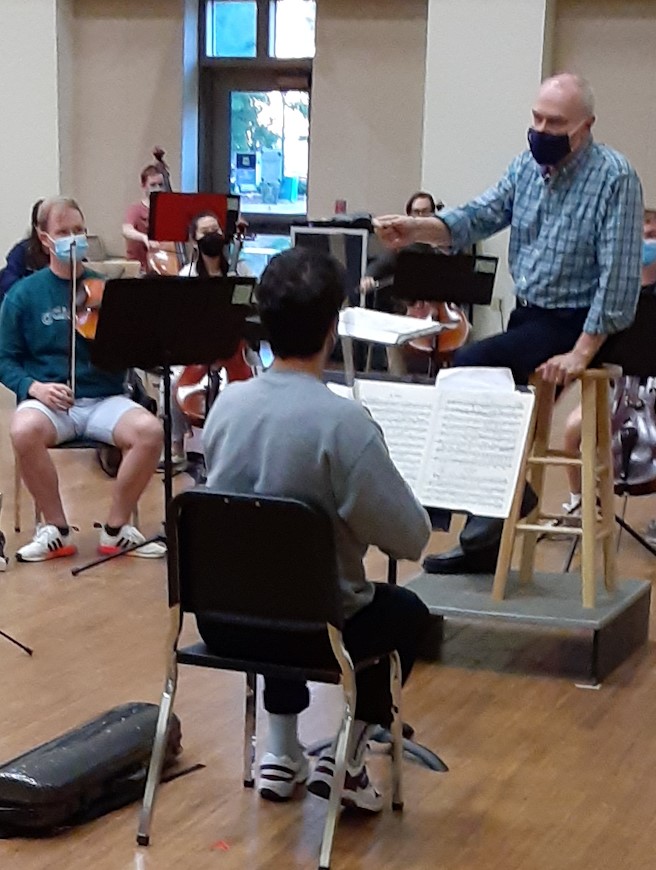Monday Musicale with the Maestro – April 26, 2021 – Cultivating New Music Part II: Bringing My New Work, Dark Testament, to Life.
View the FREE live-streamed concert premiering Maestro William Henry Curry’s Dark Testament performed by the UNC Symphony Orchestra
on Wednesday, April 28th, starting at 7:30.
No Ticket Required – access the performance via this link:
https://youtu.be/Dm4tmLj1mDY
In these blogs, I have spoken often of my commitment to programming and premiering works by contemporary American composers. Today I’d like to add that in the state of North Carolina, one of the best friends such composers could have is the conductor Tonu Kalam.
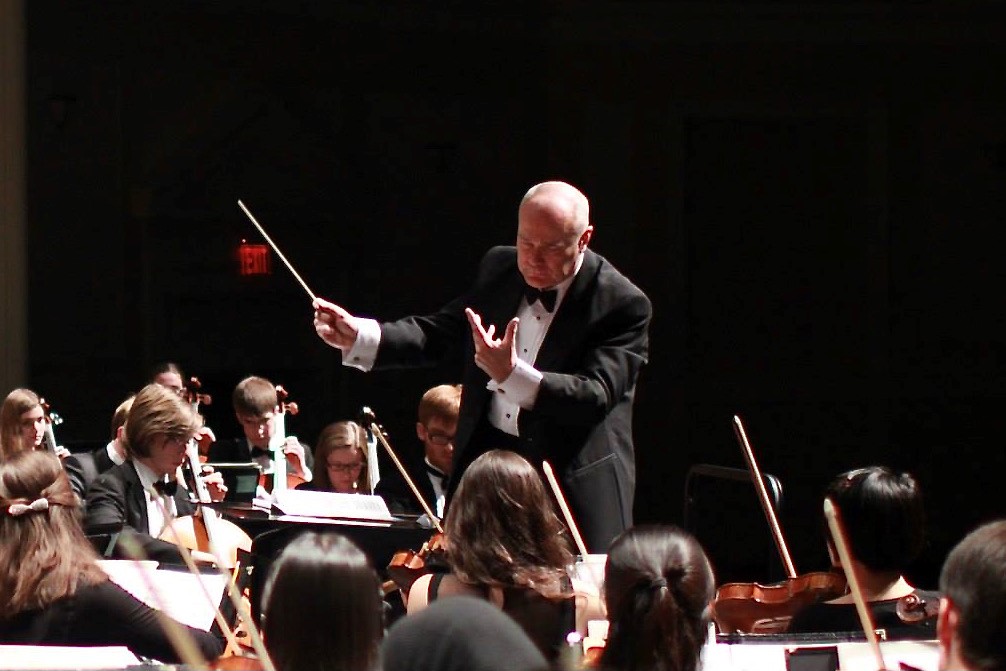
Born of Estonian parents, Tonu was trained as a conductor, pianist, and composer at Harvard University, the University of California at Berkeley, and the Curtis Institute of Music, with summer festival activities at Tanglewood, Aspen, and Marlboro. He has guest-conducted orchestras across the United States and Europe, and he has also led over 135 staged opera performances. Presently he is a Professor of Music at the University of North Carolina at Chapel Hill, where he has served as Music Director and Conductor of the UNC Symphony Orchestra for 33 years. In addition to his conducting activities, he performs regularly as a pianist and chamber musician, and he is also a member of the Advisory Council and former president of the International Conductors Guild.
Tonu has shown both dedication and discernment in his programming and interpreting of new American music. He has conducted world premieres, works by UNC faculty composers, and music by some of the best-known American composers of our time, including John Adams, Phillip Glass, and Christopher Rouse. Through his work, he has educated not only his student musicians, but also our entire music community.
So you can imagine how honored and flattered I was when he commissioned me to write a new work for the 2020-21 season. The funding was provided by the UNCSO with assistance from UNC’s Arts Everywhere. The work was to be for string orchestra and approximately eight minutes long.
Though I formally accepted Tonu’s commission in August 2020, I suffered writer’s block for several months, and it wasn’t until January that the piece began to take shape in my mind. Work on it continued very slowly, even though the first rehearsal date (March 31) was fast approaching. By March 8th (2 weeks before rehearsals were to begin), I felt the time had come to phone Tonu, apologize, and suggest that he program something else, by a different composer. But his response was to offer me three more weeks to finish the piece and to seek a delay for the first rehearsal. I said “Yes”—and crossed my fingers.
Those of you who are composers will recognize that this was an extremely tight schedule—all the worse since I am an extremely self-critical (and thus slow) writer. Sometimes I have spent 8 hours composing 8 seconds of music! Nonetheless, I accepted Tonu’s challenge, and after talking to him on the phone, I went immediately to the piano (just like in a movie) and started putting notes on paper.
Truth to tell, I was both energized and terrified by his challenge, for it is one thing to compose a work, but then you have to orchestrate it. In this case, that meant managing fourteen different parts for each measure. Yet I kept in mind Leonard Bernstein’s now famous saying:
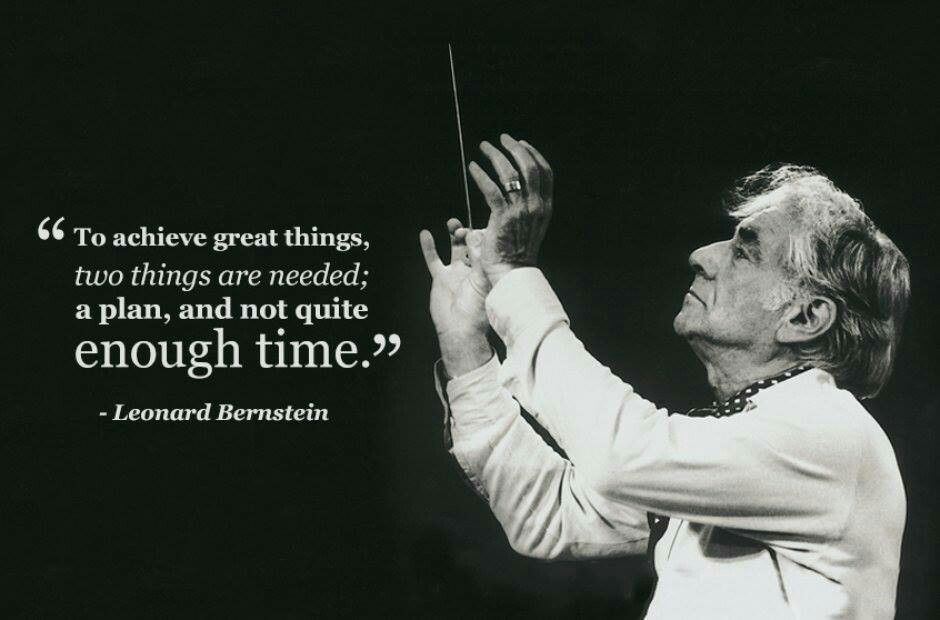
Despite the short time schedule, my composing flowed more easily than usual, perhaps inspired by the subject itself: a musical tribute (based on spirituals) to three heroic and iconic African American women: Mahalia Jackson, Pauli Murray, and Harriet Tubman. The composing phase was finished in ten days, and the orchestration (normally the work of three weeks) was finished in four days. Then my barely legible manuscript went to my dear friend at the Peabody Conservatory, engraver Richard Drehoff, who transferred thousands and thousands of notes to produce the 14 separate parts for string orchestra. Richard describes the process this way:
When engraving a piece of music, the goal is always to provide the performers with the most useful representation of the composer’s intentions. With Dark Testament, the opening of the work was certainly the most challenging aspect. Bill wanted four soloists to play various spirituals independently at different tempi, with half of the orchestra entering at one moment and the other half a few measures later. I took Bill’s handwritten score and typed the notes of each measure and for each instrument into the computer using Sibelius notation software, then added dynamics, technical indications (such as arco and pizzicato), articulations, and tempo changes. After entering all of the musical elements and proofreading the entirety for accuracy, I went through each page to determine if any staves could be consolidated (especially when the soloists had the same music as the rest of the section) and how many measures would be most legible on each page.
When making parts for each of the performers, we also had to consider when the performers would be turning the page, formatting the music to create logical places for page turns when musicians are not playing. We also added cues to the individuals’ parts to help keep the ensemble together. The cues enable them to follow what other performers are doing while they themselves are not playing. Finally, each of the notes in the score and parts was adjusted individually to be as legible as possible (moving flags away from ledger lines, makings sure beams adhere to stave lines or ascend/descend with melodic fragments, etc.). It is quite a tedious process, but a necessary one that helps ensure the best possible performance of a new piece of music.
During this stage, Richard and I burned more midnight oil than we’d like to remember. Despite the late start and his taxing work schedule, Richard’s attitude towards me—which SHOULD have been furious—was more like that of the biblical Job. Somehow, he managed to accomplish his part of the project in record time, and on March 27 (four days before the first rehearsal), I handed Tonu the finished parts and the orchestral score. As I later found out during a rehearsal with the orchestra, my eight-minute piece had somehow morphed into an eighteen-minute piece, the longest I have ever written!
The rehearsals with these gifted students have been a joy, and I have been deeply impressed by Tonu Kalam’s comprehension, his musicality, and his approach to rehearsing my piece. This is the first time that I have not conducted the premiere of one of my own works, but I can honestly say, I could not have been in better hands—not even my own.
Below are some photographs from these sessions in the rehearsal hall of the Kenan Music Building, UNC-Chapel Hill.
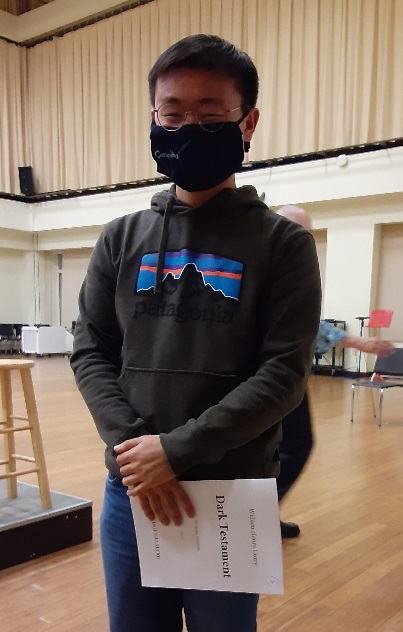
As I expected, the most difficult parts of my piece were the jazz improv sections in the first movement (inspired by gospel music) and the ragtime rhythms in the Finale. These talented string players had certainly heard such rhythms before, but they had never played them. This style of music can confound even professional string players, who (unlike their brass, woodwind, and percussion counterparts), often grow up without playing anything resembling real jazz or pop music. Nevertheless, by the third rehearsal, these UNC students were rockin’ and rollin’, and I could not be more pleased with their efforts and their enthusiasm for the piece!
Tonu Kalam has prepared a wonderful program in which to set the premiere of Dark Testament. The concert will open with a performance of Sarasate’s Zigeunerweisen by violinist Amy Zhang (winner of UNC’s Concerto Competition), and it will conclude with Tchaikovsky’s wonderful Serenade in C Major, op. 48.
I hope you will be able to “attend” this FREE live-streamed concert on Wednesday, April 28th, starting at 7:30. You may access the performance via this link: https://youtu.be/Dm4tmLj1mDY. If you are unable to join the live event, you can return to the link soon after to access a recorded version of the program.
In the meantime, you can enjoy a PDF edition of the concert program and notes for Dark Testament here.
Early in April, Catherine Zachary (of UNC’s Department of Music) published an in-depth interview with me concerning the new piece, my background, and the inspiration I have gleaned from the lives of the women honored in Dark Testament. I was honored to speak about them and about the project in such depth, and I hope you will enjoy the article, too. It can be accessed here: https://music.unc.edu/2021/04/07/dww-william-henry-curry-conductor-and-composer/
William Henry Curry
Music Director
Durham Symphony Orchestra
Comprehensive Editor (Text): Suzanne Bolt
Copy Editor: Tina Biello
Digital Layout and Publication: Tina Biello & Max Wang
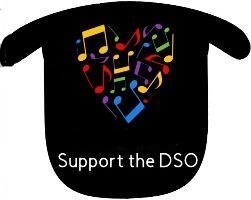
“Monday Musicale with the Maestro”
would not be possible without your support!
Thank you for being an important part of the
Durham Symphony Orchestra family!
We gratefully acknowledge support from the City of Durham, Mary Duke Biddle Foundation, the Durham Arts Council’s Annual Arts Fund, and the N.C. Arts Council, a division of the Department, of Natural and Cultural Resources.
. 






